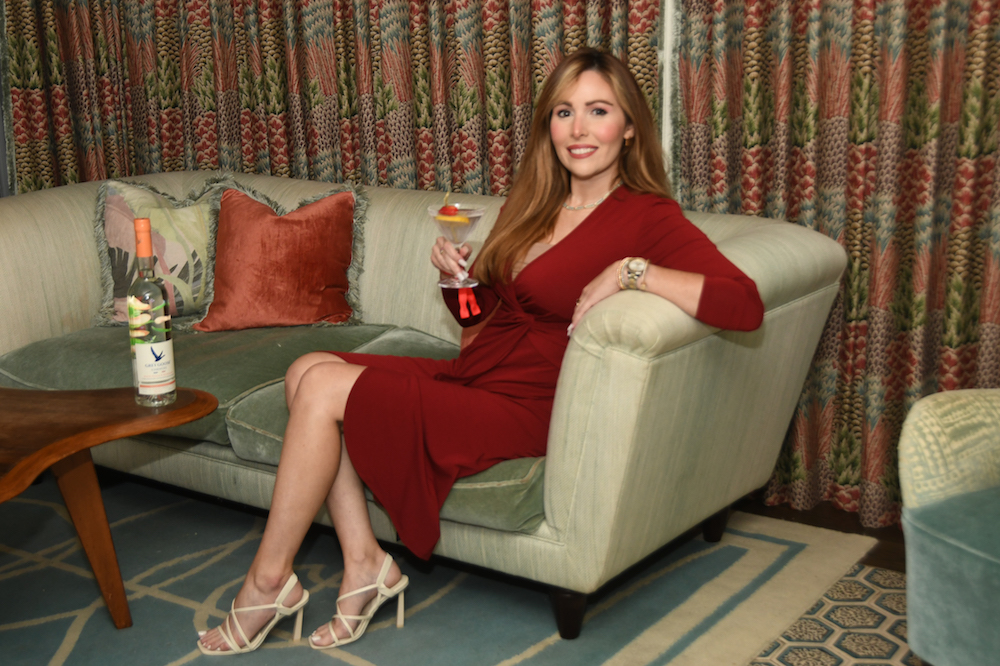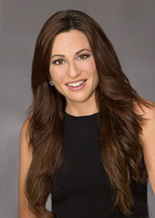Pretty Powerful: Danielle Dubuc Wightman
The executive director of the FCC USA was one of three women to be honored by GREY GOOSE vodka in a series celebrating extraordinary women.



Danielle Dubuc Wightman is the executive director of the FCC USA, an organization working in Miami-Dade and Broward counties to promote social and emotional learning through soccer. Dubuc Wightman has been championing social and emotional learning for parents and adolescents for the last 16 years. With the goal of emotional safety in families, she has been building bridges between the public and private sector by getting elected officials and business leaders become more involved in educational and support programs.
Dubuc Wightman has developed a Girl’s Empowerment Program for girls ages 9 to 17, where girls learn emotional resilience, self- acceptance, boundary setting, holistic well- being, financial literacy, as well as a purpose-driven leadership by serving others and becoming agents of change in their community. She’s been invited as a guest speaker in middle and high schools across the U.S and South America, and in different universities to equip and empower youth to build emotional resiliency and healthy relationship skills.
Dubuc Wightman was born and raised in Miami, Florida and has lived in Colombia in different seasons of her life. She studied Education and was certified as a Leadership and Strategies Coach from Harvard and Yale University, and has a Dual Master’s Degree in Neuropsychology, Multiple Intelligences and Mindfulness from IMF University in Madrid. She was named 2020 Business Woman of the Year in the Non-Profit Business Sector by the Coral Gables Chamber of Commerce. She is a wife and mom of two children.
SocialMiami editor Brett Graff sat down with Dubuc Wightman to sip Grey Goose Essences – on this occasion it was White Peach & Rosemary — and discuss how soccer can change lives and improve communities.
What separates FCC USA from other children’s leagues?
First of all, soccer has power to bring safe mentoring. Many kids feel they can’t talk to parents and we can be a safe space with referral linkages to protect them. Also, suicide and other issues happen when kids are in isolation. When a kid is going through a lot he or she isolates, so there’s a protective buffer for children going through hardships. And even if they’re not, we can be a protective buffer when kids indeed face challenges. That’s where resilience is formed, no one is resilient in isolation.
There’s a message imbedded in the drills. We’ll have kids for example work in pairs, kicking balls the opposite way. You’ll see kid struggling and we’ll say at the end, “How did you feel?” They’re flailing, laughing, but falling and saying “Oh was hard.” But then we’ll go into a discussion about how it feels to have someone pressure you to in the opposite way. We open up the conversation to topics of addition, not just how to say no but why. Then what will they do to become leaders. A lot of times it’s keeping them busy but also having a purpose in life. We now each kid has a specific purpose, his pain can become his purpose, his mess can become his message.
What are the long-term effects?
We invest in underserved communities by having a long term impact on the children who live there. Their parents are often migrant or farm workers and many of them say they want to grow up to become doctors or lawyers. We make sure they stay on that path. We’re a non-profit but we’re more of a social enterprise. We provide a service of excellence that’s long term, so kids become leaders in those communities, we don’t refer to our supporters as “donors” but rather “social investors. And our social investors champion those initiatives.
Who participates?
We are co-ed. Usually 60 percent boys and 40 percent girls. We believe women in sports incredible. In Latin America the girls who do sports never end up pregnant, they’re so busy and active being leaders, they don’t have time for toxic relationships. They have their goals set, there’s an art and science to goal setting: How do we architect our emotional state, how do we want to feel in five years?
How are the coaches trained?
We’re not a soccer academy, we use soccer as a tool for transformation. We use it to end cycles of intergenerational poverty or suffering. We have quality coaches — they do everything a typical soccer coach does — but they are also trained in trauma and resilience. We have an FCC academy online and we do need minimum qualifications, coaches are tested before working with the kids. But we’re not focusing on soccer performance. All coaches treat each kid with a sense of dignity.
How did you choose this as your career?
There was domestic violence in my house growing up. I was a good student when I started seeing dad throwing glasses and bottles of alcohol and then I couldn’t even focus in school. My mom was in survival mode, she loved us and divorced him. We moved to another household and I was molested but my mom didn’t believe me. That built a lot of resentment and in my teenage years, the anger exploded. I wouldn’t drink but I was in toxic environments and one day, I had a friend passed out, she was vomiting, I smelled her breath, I smelled my dad’s breath. I said to myself, “This has to stop.” I met a mentor, a coach at 16 years old and I believe God sent that coach. He gave me the tools to find my purpose, to became active in school and to do mission work.
Bonus question: what can even attentive parents do to help kids?
We’re wired for connection, our brain craves connection, when a child is born, he craves connection, many times that connection is interrupted, we want to reestablish connection. When there’s no connection there’s isolation. Not just communication, teenagers don’t always want to talk. Just play – the opposite neurological response to trauma is play — so you look for what are the things he or she likes to play. Even X Box.

Brett Graff is SocialMiami.com’s managing editor and has been a journalist covering money, people and power for over 20 years. Graff contributes to national media outlets including Reuters, Glamour, Harper’s Bazaar, Maxim, and the PBS show, Nightly Business Report. A former U.S. government economist, her nationally syndicated column The Home Economist is first published in The Miami Herald and then on the Tribune Content Agency, where it’s available to over 400 publications nationwide. She is broadcast weekly on two iHeartRadio news shows and is the author of “Not Buying It: Stop Overspending & Start Raising Happier, Healthier, More Successful Kids,” a parenting guide for people who might be tempted to buy their children the very obstacles they’re trying to avoid.


